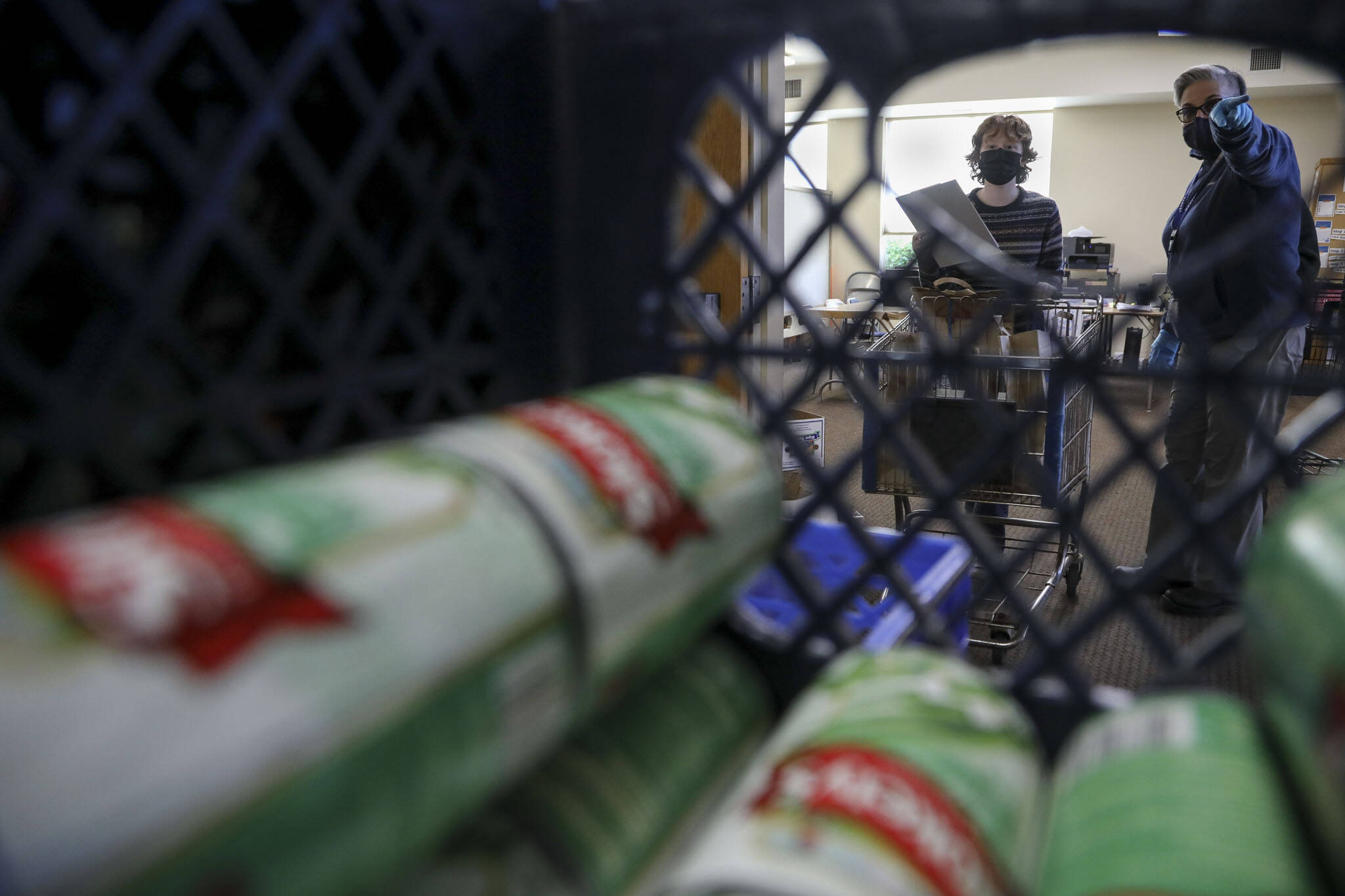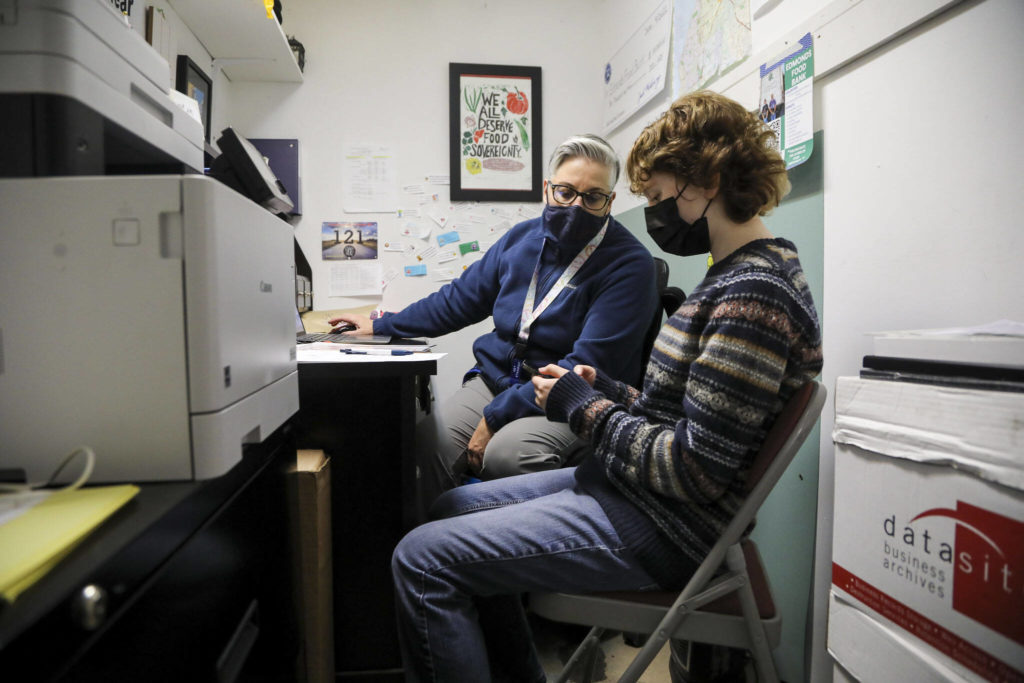EDMONDS — Casey Davis and Juniper DeCasso leaned toward the computer in Davis’ office on Jan. 16 to review the latest draft of five proposed survey questions for Edmonds Food Bank visitors.
“We ask them if they feel comfortable here,” Davis said. “Maybe we should ask them how comfortable they feel?”
“Let me write that down,” Juniper said while opening a notes app on a cellphone.
Since November, the food bank’s executive director, Davis, has mentored Juniper to create the survey. Later this month, the high school student will create a two-minute video about the survey’s findings and present it to the board of directors.
“The end goal for me is to create a film that I’m proud of, because I haven’t done a project like that in a really long time, where I’ve done step-by-step filming, editing, producing,” Juniper told The Herald. “And I haven’t presented anything like that in front of adults before, or in front of a company.”
The exercise is a practice of future job skills for Juniper, who wants to someday become a filmmaker. It’s also an actual, paying job.
Juniper is one of five Scriber Lake High School students involved in a pilot of the Edmonds School District’s new on-the-job-training program that lets students earn class credit for part-time, paid internships. The program pairs with school assignments about resumes, financial planning and career aptitude.
This spring, the district plans to double the number of spots in the program. The final vision is to expand the program to all five Edmonds high schools and support hundreds of internships each year.
“We are hoping that this becomes a flagship, best-practice program that other school districts and foundations can replicate,” said Deborah Brandi, executive director of the Foundation for Edmonds School District.
The foundation funds the salaries, which top out at about $515. Students work no more than 40 hours total over a six- to eight-week term.
The pay sets the course apart from most other career-focused classes at school. And it encourages students who might otherwise skip school for financial reasons to stay in class and pick up valuable skills for their future.
“If you have to work to take care of your parents and younger siblings … there’s not really an incentive to stay in school because you have more pressing issues to take care of,” said Deborah Jacobsen, operations and communication manager for the foundation.
That’s important at Scriber Lake, where more than half of the students are considered low-income. Low-income students are more likely to drop out of high school, make lower wages and experience health problems later in life.
The school also has the lowest four-year graduation rate in the district and the highest percentage of homeless students.
Last year, not a single student from Scriber Lake applied for a scholarship from the foundation, Brandi said. So the foundation decided to start the job training program there to reach students with the greatest needs, she said.
“We are trying to change their trajectory, so they see they have options available for them,” she said. “We are giving opportunity and hope for students who just don’t know what the future is going to look like for them.”
For Juniper, the student interning with the food bank, the pay offers practice managing money.
“It definitely has made me more mature,” said the 17-year-old. “It made me realize, ‘Oh, this money comes from hard work. It comes from real learning, real knowledge and real studying.’”
Juniper has also gained several “soft skills” like public speaking and time management while working alongside adults of all ages in a “not such a homogeneous environment” as high school, said Davis, the food bank director.
Beyond placing students in paid internships and raising their confidence, the new program helps more local businesses host students, said Mark Madison, the district’s director of career and technical education. Often, small businesses want to offer internships but can’t afford to pay a work stipend.
The foundation’s funding for wages removes that obstacle, allowing a greater diversity of partners to “invest their time and talent to develop a workforce” locally, Madison said.
The idea for the program has been brewing for about five years, Brandi said. It’s based on a similar model out of Tacoma.
The Edmonds version was just about to launch in 2020 when the pandemic started.
The final vision is to establish a districtwide program that can support at least 100 internships, Madison said.
“We see this as a very long runway,” he said. “It’s one of those enduring priorities that we will continue to develop over the next several years.”
Mallory Gruben is a Report for America corps member who writes about education for The Daily Herald.
Mallory Gruben: 425-339-3035; mallory.gruben@heraldnet.com; Twitter: @MalloryGruben.
Talk to us
> Give us your news tips.
> Send us a letter to the editor.
> More Herald contact information.





























